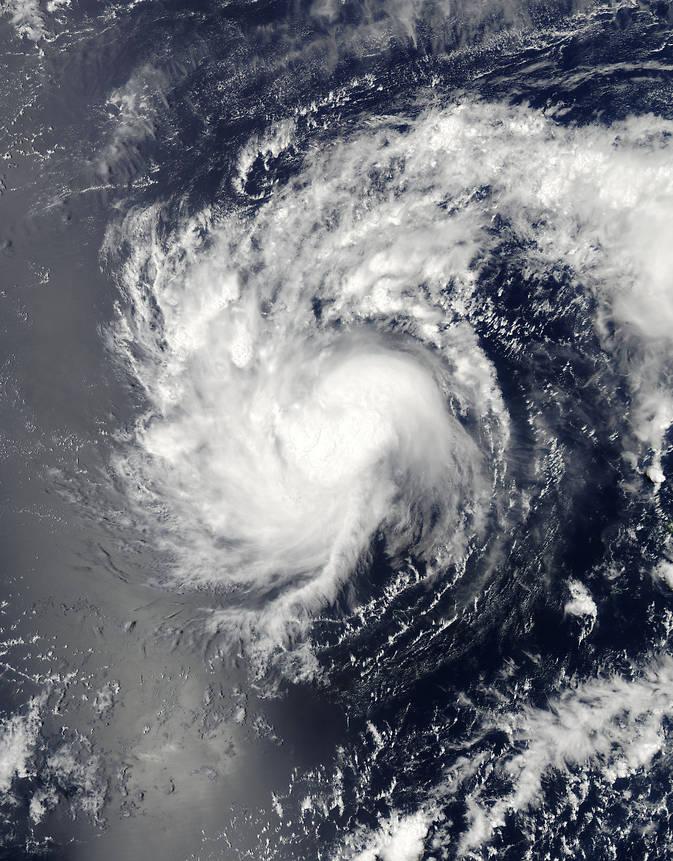Tropical Depression Haishen moves away from Fananu

NASA's Aqua satellite captured this visible-light image of Haishen in the Pacific Ocean on April 4, 2015, when it was a tropical storm. Credit: NASA Goddard's MODIS Rapid Response Team
Before Haishen weakened from tropical storm status, NASA's Aqua satellite passed overhead and captured a visible image showing the system over Micronesia.
On April 4 at 03:00 UTC, the Moderate Resolution Imaging Spectroradiometer or MODIS instrument aboard NASA's Aqua satellite captured a visible image of Tropical Storm Haishen over the Fananu and the Federated States of Micronesia.
The MODIS image showed the center of the storm northwest of Fananu.
By 1500 UTC (11 a.m. EDT) on April 6, Haishen had weakened to a tropical depression with maximum sustained winds near 25 knots (28.7 mph/46.3 kph).
The depression was moving to the north-northwest at 7 knots (8 mph/12.9 kph), further away from Micronesia.
It was centered near 9.6 north latitude and 150.3 east longitude, about 149 nautical miles (171 miles/276 km) northwest of Chuuk.
Infrared imagery showed that there was little strong convection left in the system and most of it was being pushed away from the center by strong southwesterly wind shear.
That wind shear continues to weaken the tropical depression and the Joint Typhoon Warning Center expects Haishen to dissipate in a day or two.
Media Contact
All latest news from the category: Earth Sciences
Earth Sciences (also referred to as Geosciences), which deals with basic issues surrounding our planet, plays a vital role in the area of energy and raw materials supply.
Earth Sciences comprises subjects such as geology, geography, geological informatics, paleontology, mineralogy, petrography, crystallography, geophysics, geodesy, glaciology, cartography, photogrammetry, meteorology and seismology, early-warning systems, earthquake research and polar research.
Newest articles

Red light therapy for repairing spinal cord injury passes milestone
Patients with spinal cord injury (SCI) could benefit from a future treatment to repair nerve connections using red and near-infrared light. The method, invented by scientists at the University of…

Insect research is revolutionized by technology
New technologies can revolutionise insect research and environmental monitoring. By using DNA, images, sounds and flight patterns analysed by AI, it’s possible to gain new insights into the world of…

X-ray satellite XMM-newton sees ‘space clover’ in a new light
Astronomers have discovered enormous circular radio features of unknown origin around some galaxies. Now, new observations of one dubbed the Cloverleaf suggest it was created by clashing groups of galaxies….





















